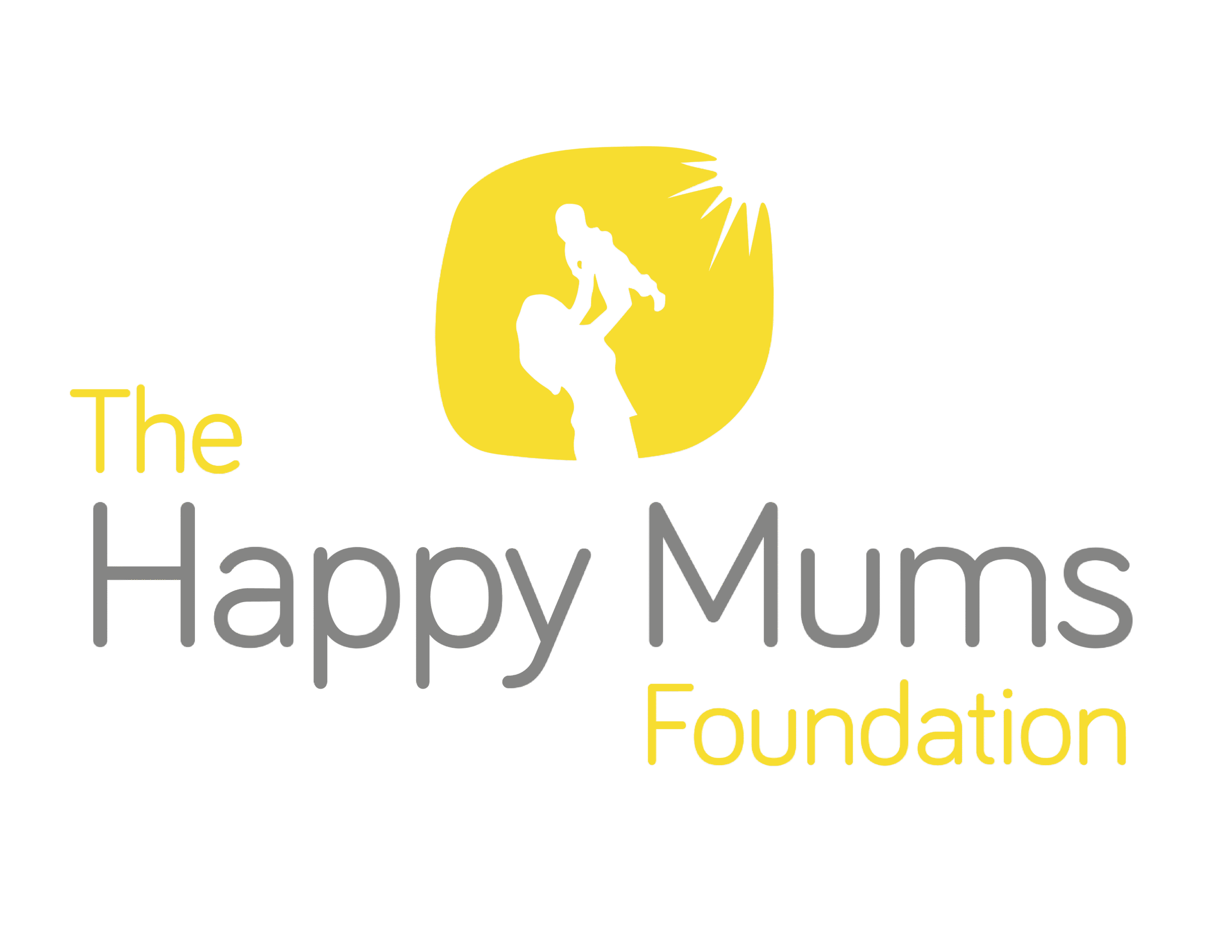At Happy Mums, we believe every story matters, especially those that are often left untold. Over the past few years, we’ve been privileged to walk alongside mums from all walks of life, listening, learning, and growing together. This project, which began as a seed of research, has blossomed into something truly special: a report and animation that reflect the voices, experiences, and resilience of north Cumbrian mums.
We’re so proud to share this blog post from one of our team members, who not only helped shape the project but also bravely shared her own journey. Her words capture the heart of what Happy Mums is all about: connection, compassion, and hope.

The launch of a report and animation, showcasing the stories of north Cumbrian mums (me included) feels a bit surreal.
The project began life 3 years ago when Happy Mums gave me the task of reaching out to communities and families who are all too often forgotten – because they are labelled ‘hard to reach’, ‘complex’ or just difficult.
It was a long process, coming up with the workshops which are detailed in the report, and from which sprouted the beginnings of the animation. We set out with big dreams – to make sure everyone got the help they needed when they needed it, regardless of their ethnicity or social status.
We wanted to raise awareness about maternal mental health, destigmatise mental illness but perhaps most importantly, bring mums and mums-to-be together to start to make sense of their stories.
It is this aspect that I would like to focus on. What did it feel like to be part of the 2 creative workshops hosted by researchers from Newcastle University at the beautiful Holme Head House on the banks of the River Caldew in Carlisle?
"As both a facilitator and participant it felt exposing: I had shared my story of suicidality, depression and despair around becoming a mother before, both publicly and as part of peer support groups at Happy Mums."
As both a facilitator and participant it felt exposing: I had shared my story of suicidality, depression and despair around becoming a mother before, both publicly and as part of peer support groups at Happy Mums.
Voicing the darkest of thoughts and being heard, sometimes by people who had felt similar if not identical things was transformative.
Seeing shards of myself in others helped me feel compassion – first for others then slowly, indirectly, for myself.
This was magnified during the workshops: we knitted together a patchwork of existing communities: from a refugee and asylum-seeking women’s group, to Diffability (a group for families of children with learning disabilities, disabilities or neurodivergence), Happy Mums (mental health peer support) and Woman Up (empowering women, girls and non-binary people). We also reached out to homeless family hostels.
This meant the group of women who took part had such different and varied experiences of life and of motherhood. As a facilitator I was anxious about whether the group would gel.
Would the differences overshadow common ground? Would the beliefs and experiences of one woman stigmatise or trigger the emotions of another?
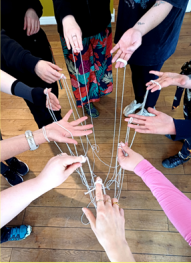
What happened on both of the days we held the workshops was powerful and beautiful.
Mina’s ice-breaker (linking us all together with a thread of wool) set the tone for a space in which difference did not preclude connection. Where we could give space for each individual, but also find points of contact.
We used collage-making to tell our story, before sharing with the group.
I went first, diving back into the darkness I felt after my daughter was born in 2018. I talked about wanting to die, not wanting to have a child (despite that child being the result of IVF) and how my future had felt like a black hole of despair.
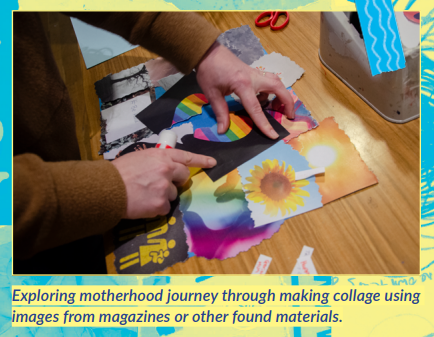
No-one else had these experiences, but I think by sharing them others felt like they had permission to expose some of their hardest experiences and feelings: being in prison, seeking asylum, being homeless, to a group of people, many of whom they had only met for the first time that day.
Gradually common experiences started to jump out: not being listened to, being underestimated, written-off or judged.
Many participants were neurodivergent or thought they might be.
Many had experienced difficult, traumatic births.
All had struggled to find a place they felt comfortable to be themselves as a mum.
"All had struggled to find a place they felt comfortable to be themselves as a mum."
Again and again, mum after mum, comfort, understanding and recognition criss-crossed the room.
It was hard to hear other people’s pain, to feel the injustices of their experiences and also difficult to put myself back into a mindset of despair.
But ultimately the love with which everyone was heard meant the overwhelming feeling was hope. Hope that we can be seen, our voices can be heard, and that we don’t have to suffer in silence and loneliness.
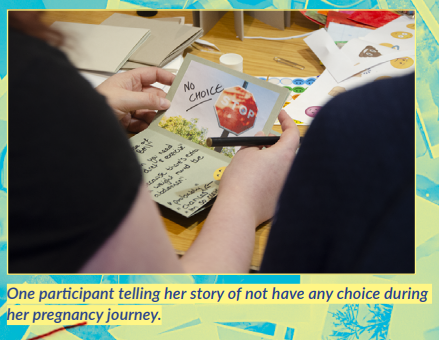
There are a lot of lessons for professionals and for society as a whole in the report and the animation but the experience of telling your story has value in itself – not just as a means of gathering information.
It can be uplifting, empowering and hopeful when heard, or traumatic, stigmatising and lonely if it is dismissed. So whatever your experience, whatever your background please know you are not on your own.
There are other people out there who have struggled too and you deserve love and hope.
This project is a celebration of courage, creativity, and community. It reminds us that motherhood is not one story, but many—and that when we come together, we can create spaces where every mum feels seen, heard, and valued.
To everyone who took part, shared their truth, or simply listened: thank you. You are part of a growing movement that says you are not alone. At Happy Mums, we’ll keep working to make sure every voice counts, and every mum knows she belongs.
This project has been in collaboration with many partner organisations, there will be a number of blogs and articles reflecting on this work from the various view points of the organisations involved. At Happy Mums, our focus is on peer support and the empowerment of lived experience, so this is the focus of our blog. We will endeavour to include all articles related to this project here over time.
Sarah’s role in co-creating, bringing together participants and facilitating workshops in this project was funded by Moorhouse Trust Grassroots Fund via Cumbria Community Foundation and the NHS CNTW Perinatal Community Mental Health Team.
More on See The Whole of Me
See the whole of me – INCLUDE+
Boost Connect & Learn: See the Whole of Me




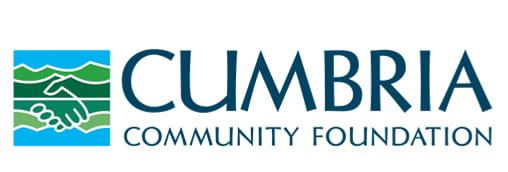





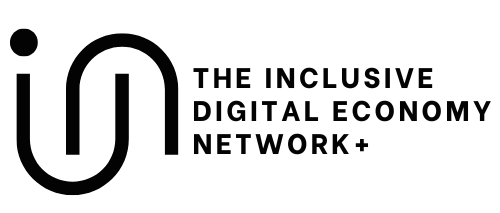
Happy Mums provides peer support groups for mums and Mums-to-be to share how they really feel without judgement.
Join a Support Group
Support Us to Support Mums
Staying Safe
If you are experiencing a mental health crisis or feeling like you want to die, it’s important to tell someone.
– Samaritans – Phone: 116 123 Email: jo@samaritans.org
– Contact your GP and ask for an emergency appointment
– Phone 111 out of hours and they will help you find the support and help you need
– Contact your local Access Liaison Integration Service (ALIS) team – Phone: 03001239015 or freephone: 08006522865
If you need immediate help, and in the case of serious injury, call 999 or go straight to A&E
